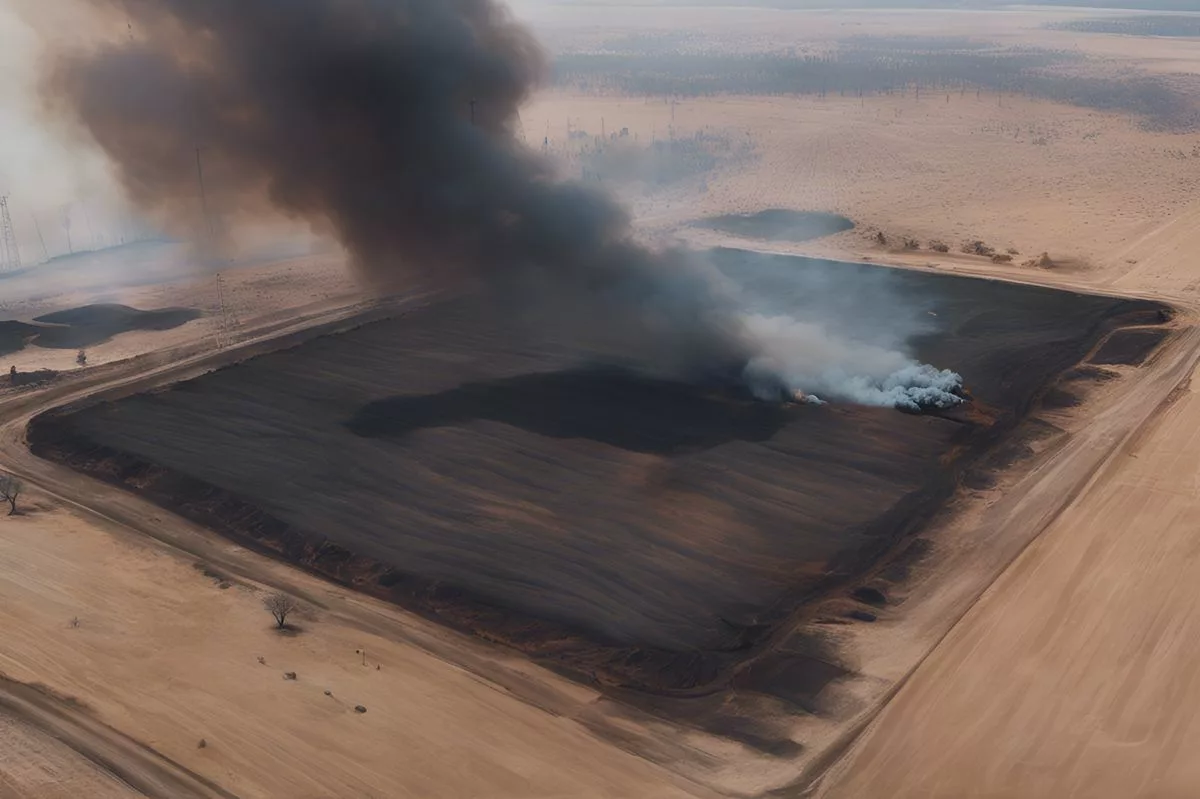The Eastern Cape in South Africa is struggling with a major ecological crisis caused by rampant veldfires, which are causing harm to the environment and livelihoods of its inhabitants. The crisis is multi-faceted and affecting the economic equilibrium, environmental health, and overall prosperity of the province. The Department of Rural Development and Agrarian Reform has proposed adherence to fire hazard assessments and active involvement in Fire Protection Associations, while also initiating projects to promote local production and generate revenue for inhabitants. The province’s administration and population are exhibiting a hopeful and resilient response to the crisis.
How is South Africa’s Eastern Cape combating the veldfire crisis?
The Eastern Cape is facing a crisis due to rampant veldfires, which pose a direct danger to life and property, lead to the loss of pasture lands, and hinder agricultural efficiency. The Department of Rural Development and Agrarian Reform has issued numerous proposals to address the issue, including adherence to fire hazard assessments and active involvement in Fire Protection Associations. The province is also initiating projects such as the introduction of a Provincial Food and Nutrition Security Plan and the creation of rural food hubs to promote local production and generate revenue for inhabitants.
Section 1: Facing the Ecological Crisis
The Eastern Cape, a South African province, is presently combating an enormous ecological debacle. A string of rampant veldfires is wreaking havoc, inflicting substantial harm not only to the pristine environment but also to the existence and sustenance of its inhabitants. The burgeoning crisis is multi-faceted, influencing the province’s economic equilibrium, sustenance assurance, environmental wellbeing, and the overall prosperity of its populace.
South Africa’s distinct ecology naturally inclines it towards the threat of veldfires. Seasonal variations, with periods of rain and drought, create an environment that encourages the ignition and propagation of fires. The advancement of cities into fire-susceptible regions, the spread of intrusive plant varieties, and the accumulation of dry vegetation intensify this threat.
The repercussions of these rampant veldfires are extensive and shattering. They pose a direct danger to life and property, lead to the loss of pasture lands, and hinder agricultural efficiency. This triggers a harsh ripple effect on rural economies and jeopardizes the livelihoods of the most fragile communities, like the communal farmers.
Section 2: Addressing Fire Management Laws
South Africa’s legal structure, encompassing the National Veld and Forest Fire Act (No. 101 of 1998) and the Conservation of Agricultural Resources Act (No. 43 of 1983), regulates fire management. Despite these precautions, the present circumstances underscore the requirement for stronger and more proactive tactics.
In reaction to this crisis, the Department of Rural Development and Agrarian Reform (DRDAR) of the Eastern Cape has issued numerous proposals. These emphasize adherence to fire hazard assessments, responsible disposal of cigarette ends, avoidance of veld burning unless it is part of an approved management plan, and active involvement in Fire Protection Associations (FPAs).
Section 3: Assessing Recent Fire Incidents
The recent upswing in veldfires and the ensuing destruction emphasizes the immediacy of the situation. Areas like Mhlontlo, King Sabata Dalindyebo (KSD) municipality, Amahlathi, Emalahleni, Intsika Yethu, and Elundini have endured the impact of these fires with thousands of hectares ravaged and substantial livestock losses.
To alleviate the difficulties brought about by food insecurity and unemployment, the provincial administration has initiated several projects. This comprises the introduction of a Provincial Food and Nutrition Security Plan and the creation of rural food hubs. The goal of these hubs is to promote local production, thereby enhancing food availability and generating revenue for inhabitants.
Section 4: The Promise of the ‘Awakening Giant’
The Eastern Cape takes pride in having the largest livestock population in the nation. Interestingly, it constitutively accounts for a mere 8% of the country’s livestock GDP. There’s an untapped reservoir in the province’s underused land and irrigation projects. The Eastern Cape Agriculture Investment Framework (ECAIF) is a stride towards optimizing its utilization to stimulate sector expansion and employment.
The veldfire crisis necessitates an immediate call to action, demanding cooperation and resilience from all participants. The Eastern Cape’s continuous efforts to mitigate the impact of these fires, ensure food security and promote economic growth, while proactively facing this crisis, foretells a hopeful and resilient response. The path is demanding, but the resolve and unity manifested by the province’s administration and its populace exhibit the enduring spirit of South Africa.
1. What is the veldfire crisis in South Africa’s Eastern Cape?
The Eastern Cape is facing a major ecological crisis caused by rampant veldfires, which are causing harm to the environment and livelihoods of its inhabitants. This crisis is multi-faceted and affecting the economic equilibrium, environmental health, and overall prosperity of the province.
2. What measures has the Department of Rural Development and Agrarian Reform proposed to combat the veldfire crisis?
The Department of Rural Development and Agrarian Reform has proposed adherence to fire hazard assessments and active involvement in Fire Protection Associations, responsible disposal of cigarette ends, avoidance of veld burning unless it is part of an approved management plan.
3. How have recent fire incidents affected the Eastern Cape?
Recent fire incidents have led to the destruction of thousands of hectares of land and substantial livestock losses in areas like Mhlontlo, King Sabata Dalindyebo (KSD) municipality, Amahlathi, Emalahleni, Intsika Yethu, and Elundini.
4. What projects has the Eastern Cape administration initiated to alleviate the effects of the veldfire crisis?
The Eastern Cape administration has initiated several projects, including the introduction of a Provincial Food and Nutrition Security Plan and the creation of rural food hubs to promote local production and generate revenue for inhabitants.
5. What is the Eastern Cape Agriculture Investment Framework?
The Eastern Cape Agriculture Investment Framework is a plan towards optimizing the province’s underused land and irrigation projects to stimulate sector expansion and employment.
6. How is the Eastern Cape responding to the veldfire crisis?
The Eastern Cape is exhibiting a hopeful and resilient response to the veldfire crisis, with continuous efforts to mitigate the impact of these fires, ensure food security, and promote economic growth while proactively facing this crisis.












